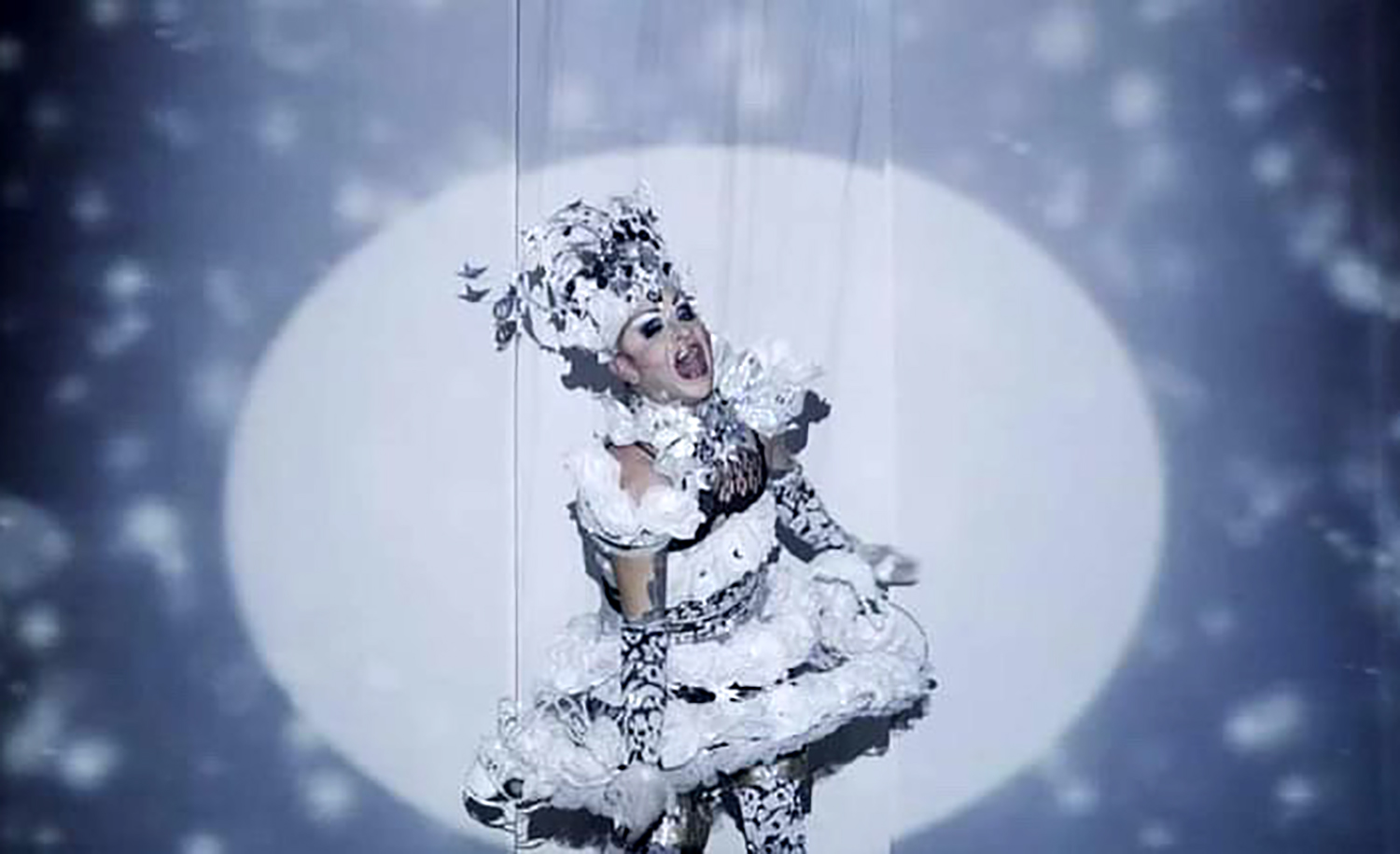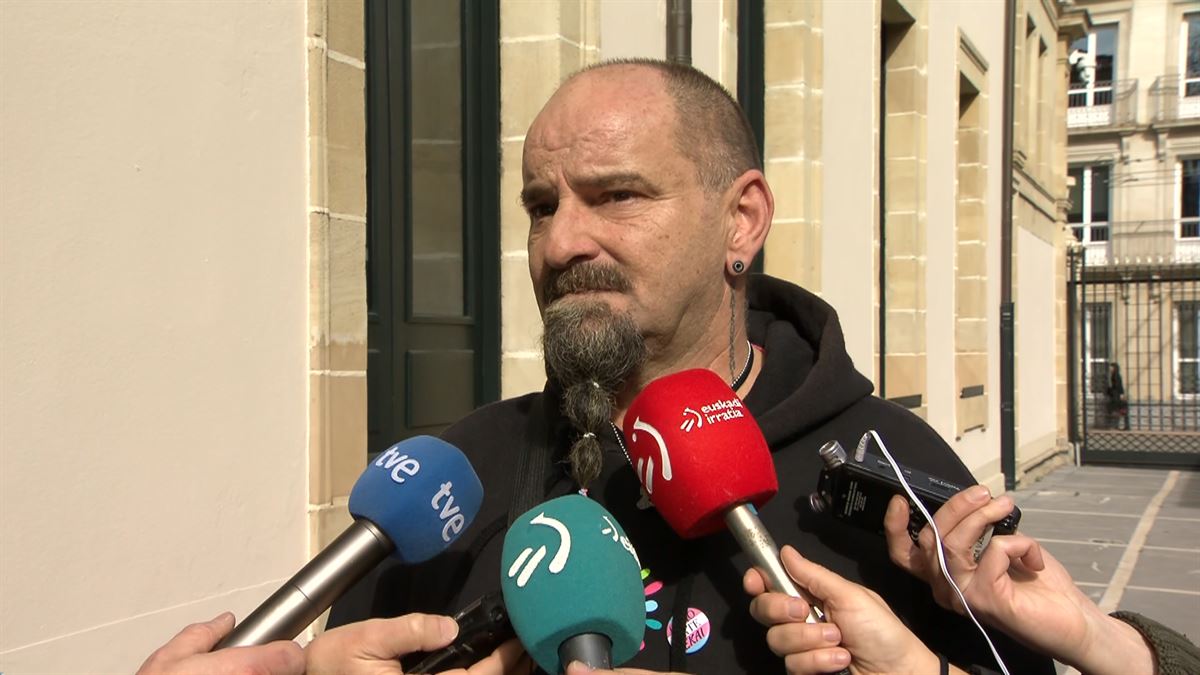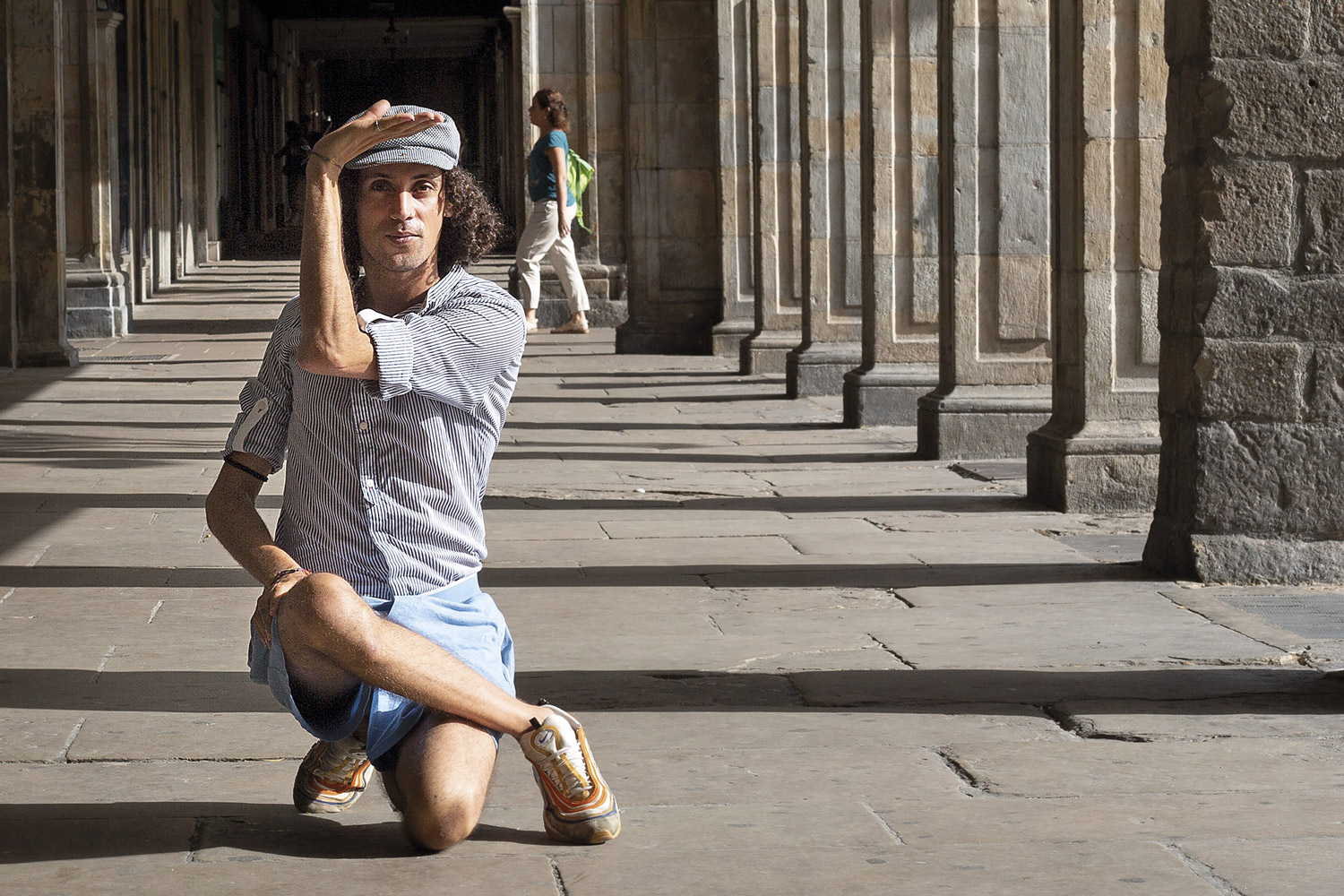"I hope that in the future that person will be asked about the gender of a person."
- Transsexuality in a person's identity puzzle when it's just one more piece is a good sign. It's as strong as the small story of Mikele Grand.

Duela 19 urte sortu zen Iruñea ondoko Uharte herrian. Txikitatik jakin zuen bera zakila duen neska dela eta hala ulertarazi zien guraso eta ingurukoei 11 urte zituela. Familian eta herrian aurkitu duen babesa eta Chrysallis lehenbizi eta orain Naizen adingabe transexualak dituzten familien elkarteen sostengua ezinbestekoak izan dira pozez beteriko bere ibilbidean. Horren lekuko da Ekhiñe Etxeberria nafarraren Mikele film dokumentala. Mikelerentzat garai berri bat zabalduko da orain, Madrila joan baita zinema ikasketak egitera.
You'll study film. You're clear on your way, aren't you?
Yes. I am going to the ECAM Academy (Madrid Film and Audiovisual School) in September to make a three-year career, in principle. Since I was a kid, I'm passionate about film, and I've done some small jobs that, yes, some of you may embarrass me. I made my first short film at the age of 13 for the competition organized by the Youth and Sexuality Program of the Government of Navarra Gozamenez. Here I wanted to give the idea that human beings often don't accept our body and that we have a lot of prejudices.
All that at the age of 13… Has your maturation process been faster than normal?
People usually think about it because I have enough experience to speak in public, but I still have a very childish character and I also like it. It's one thing to talk and have some clear ideas and the other is to be mature. I still have to learn a lot.
Has the theater helped you from a young age?
A lot of it. Especially when it comes to the emergence of emotions. At first, I was a little embarrassed and I was nervous, but I've never had a problem talking about my transsexuality. I've lived it in a rather natural way, and I teach it to people. For other transsexuals, on the other hand, it seems to me to be a kind of taboo.
In my case, happiness is what reigns. There are some obstacles, of course, but I have hardly noticed any obstacles on the part of society."
What is the importance of communication on the road to the normalization of transsexuality?
It is a real key to me. If you want to explain something, but if you don't do it clearly, people aren't going to get that message and they're not going to understand it, and when you don't understand something, you don't accept it, and that's where the backs come, even the hatred comes from. Social exclusion occurs because we want to put out what we see as rare. What I want is for people to think about it and understand it as a natural process.
Is joy also necessary in the world of transsexuality?
No doubt. When people come to know the life of a transsexual person, they usually do it with a little bit of morb. They await a report of the suffering of that person and, fortunately, in my case it has not been so. However, it must be acknowledged that, unfortunately, the usual is the other, the suffering of transgender people, exclusion…
Is your case special for that?
Yes, in my case happiness prevails. Of course there are some drawbacks, but on the part of society I have seen almost no impediment so far. When filmmaker Ekhiñe Etxeberria proposed to me to make a movie to tell my story, I thought it was a great idea. But he soon realized that it was hard for him to relead the story because he was expecting something more dramatic. I said I couldn't find anything there to do a drama. In the end he made a very nice and joyful documentary, because that's my reality. There is no conflict, nothing happens, but at the same time everything happens and people liked it very much.
.jpg)
Has the attitude of parents been the key?
They've always had a very positive attitude, they and the whole family as well. I remember when I was 3 years old, I wanted the suit of the giant queen of Huarte's comparison above all, and the sister of one of my aunts made me a beautiful one. I would wear it whenever I could, until it was small.
At first they have lived with fear, but then with peace of mind. This situation has given me strength to live without fear. Now I'm going to Madrid to study film, and I hope that in that environment we'll find open people who want to tell different stories. I am quite calm in that regard.
Do you feel protected in Huarte?
Yes. Many times it says “Herri txiki, infernu handi” but I in Uharte do not feel it. There is a lot of talk, of course, but in a didactic way and with a desire to learn. In schools, for example, there is a lot of talk to children about these issues and my case. I am very proud of the islanders.
My friends have always been by my side and they give me support and strength. The same is true in the Atarrabia and Alaitz schools and institutes. On the part of students, families and teachers, everything has been very positive.
When I started in high school, for example, I was going to the girls' locker room before anybody entered high school. I quickly changed clothes to get it out as soon as possible. I thought maybe the other girls wouldn't want me to be there. But the opposite happened. They told me I should be there.
How do you assess the help of Chrysallis and the Naiz associations that have now been set up?
It was magnificent. Immediately after my parents sought help they received their support. For them it was like finding an oasis in the middle of the desert. Chrysallis is a nationwide organization that holds two meetings a year, and lets you know more cases and families like yours. There's a very nice atmosphere: talks, games -- at 11 years old, I thought no one else in the world like me. All the passersby I knew were adults, some very old. Thanks to the Chrysallis and now Naiz associations, I have had the opportunity to meet more people of my age. In addition, their collaboration has been essential to start working with endocrines and psychologists. Now, fortunately, I don't need the help of psychologists anymore.
"The bus from the 'Get Heard' campaign is so ridiculous that I no longer feel grudge against the people who spread these kinds of messages."
What has your transition been like?
I've always known that I'm a child, because that's something you know, but as a child, people told me no, that I was a child, so I changed my speech saying I wanted to be a girl. But when I was 11, I called my mother into my room and I seriously told her that I didn't want to be a girl, but I was a child. At the time, parents changed the chip and we started looking for help. They saw that they didn't have a gay son and a little daughter, but two daughters.
It has been a process of transition, but not only mine, but also the people around us. When I was a kid, I didn't want a lot of people to know, but when I saw that people responded very well and they were eager to learn, I began to show more and more that I was a transsexual child.
Physical transition is a very long process and in some cases mischievous. It can be done by whoever wants it and whoever does not want it. A few years ago, I started treatment, before I started adolescence, and I have to follow my entire life. It's not harmful, it doesn't have any side effects and it's just a pastillite. I guess someday I might have genital surgery. But for the moment, I don't have that idea in my head. I'm very good and very happy, as I am.
Are treatments included in social security?
Some things do and some do not. In Navarre and in the Basque Autonomous Community, for example, the same is not true for the whole State.
The subject is biased, isn't it? Looks like you're sick...
Yes, it is. In Spain until recently it was classified as a brain disease and in many parts of the world it was thought how they are. If homosexuality is a reason to kill a person, you don't talk or talk about transsexuality. It's terrible.
Does our society need to change the gender perspective?
Since I made change, I've been a woman before the whole world and ready, but there are people who don't identify with a gender or identify with both. There are many variants, so I believe that gender classification must be eliminated once and for all, everywhere.
I don't know if the gender perspective is going to be very different in the future, but I hope that I at least ask that person for the gender of a person, and not for the outward appearance. Recognition and respect.

Ekai, what do you feel when you see news like the suicide of a young transsexual ondarrutarra?
Terrible sadness. In addition, it is not a suicide, but a social murder. Society takes that child to commit suicide. It's very hard. In the face of this, the important thing is education. Also for children and adults, to eliminate bias.
Can the prestigious Skolae educational programme in Navarre be effective, for example?
Yes. It is an excellent programme. In addition, I have had the opportunity to see it in practice right here, in the schools of Huarte, and it seems to me a very appropriate path. If you teach a boy or girl from a young age that this is normal, natural and that you have to treat it normally, it will grow up with that idea. The new government has ensured that it will continue with Skolae and it is good news.
Some don't love gender diversity and equality. Why?
I don't think of it. I do not know why, because we do not harm anyone. It's a deep-rooted hatred, but I don't know why.
Have you seen buses from the “Make Noise” campaign?
Yes and they are ashamed of the neighborhood. It is so ridiculous that I no longer feel grudge against the people who broadcast such messages. They almost make me laugh. I look strong and very empowered to all LGTBI+ collectives and movements, and that also helps me.
You were recently asked in the Ur Handitan program: “If you are born again, how would you like to be.”
Yes, and I still remember that when I told her the surprise face that the journalist Xabier Madariaga put on, I told her that I would like to be a transsexual woman again, that nothing would change.
What stories would you like to tell in your movies?
Stories like mine and other groups that feel marginalized like me: women, black people -- I want to give a voice to groups that struggle to be experts.
What's Mikele like?
Joyful, ruthless, very optimistic and sometimes a bit clumsy. There are thousands of pieces in that puzzle, and one of them is being transsexual, but that's just another piece.

























